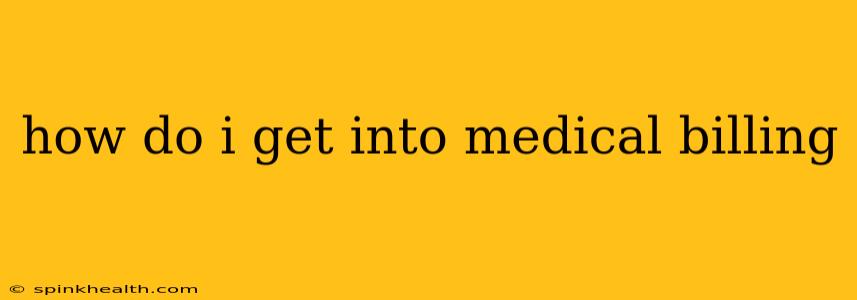How Do I Get Into Medical Billing? A Journey from Aspiration to Expertise
The world of medical billing might seem complex from the outside, a labyrinth of codes and regulations. But for those with a knack for organization, detail, and a passion for healthcare, it can be a rewarding and stable career path. This isn't just about crunching numbers; it's about ensuring healthcare providers get paid for the vital services they provide, ultimately contributing to the smooth functioning of our healthcare system. So, how do you navigate this path and embark on your medical billing journey? Let's explore.
What Skills Do I Need for Medical Billing?
This isn't just about knowing how to use a calculator; successful medical billers possess a unique blend of skills. Strong organizational skills are paramount – you’ll be handling mountains of paperwork (even in a digital environment!). Attention to detail is crucial, as even a small error can delay payment. A solid understanding of medical terminology is essential for interpreting patient records and medical codes. Finally, proficiency in software like billing software (various programs exist) and spreadsheet programs is a must. Beyond these technical skills, excellent communication is key – you'll be interacting with patients, doctors' offices, and insurance companies.
What Education or Training Do I Need for a Career in Medical Billing?
The great news is that you don't need a four-year college degree to break into medical billing. Many individuals find success with shorter, targeted training programs. These programs often cover:
- Medical Terminology: Learning the language of medicine is foundational.
- ICD-10 and CPT Coding: These coding systems are the heart of medical billing.
- Insurance Claim Processing: Understanding the intricacies of how insurance claims work is crucial.
- Billing Software: Familiarity with industry-standard software is essential.
- HIPAA Compliance: This covers regulations around patient privacy and security.
Several avenues exist to acquire this education:
- Community Colleges: Many offer certificate or associate degree programs in medical billing and coding.
- Vocational Schools: These schools often focus specifically on medical billing and offer intensive, shorter programs.
- Online Courses: Numerous online platforms provide courses on various aspects of medical billing, from introductory levels to advanced topics.
Consider your learning style and budget when choosing your training program. Look for programs accredited by recognized organizations to ensure quality.
What is the Best Way to Get Experience in Medical Billing?
Theory is only one part of the equation. Hands-on experience is crucial. While formal education lays the groundwork, practical application solidifies your skills. Here are a few paths to gain valuable experience:
- Internships: Look for internships at hospitals, clinics, or billing companies. These offer invaluable real-world experience.
- Entry-Level Positions: Consider roles like medical billing assistant or coding specialist. These often require less experience than senior roles and provide a platform to build your skills.
- Volunteer Work: Offer your services to a non-profit clinic or healthcare organization. This can help you build your resume and gain valuable experience.
What Certifications Are Available in Medical Billing?
While not always mandatory, certifications can significantly enhance your job prospects and demonstrate your commitment to the field. Some popular certifications include the Certified Professional Coder (CPC) and the Certified Billing and Coding Specialist (CBCS). Research different certifications and choose one aligned with your career goals.
What is the Job Outlook for Medical Billers?
The job outlook for medical billers is generally positive. As the healthcare industry continues to grow, the demand for skilled medical billing professionals remains strong. The Bureau of Labor Statistics projects steady growth in this field, making it a relatively secure career choice.
Is Medical Billing a Good Career for Me?
Consider this path if you are detail-oriented, organized, enjoy problem-solving, and have a strong interest in the healthcare sector. It's a field that blends technical skills with a genuine impact on the healthcare system. It’s not always glamorous, but it's undeniably crucial. Your meticulous work directly impacts patient care and the financial health of healthcare providers. If this sounds like a good fit, start your research, find a reputable training program, and begin your journey toward a rewarding career in medical billing.

